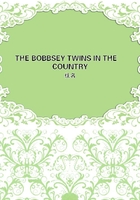CRATYLUS: Representation by likeness, Socrates, is infinitely better than representation by any chance sign.
SOCRATES: Very good: but if the name is to be like the thing, the letters out of which the first names are composed must also be like things.
Returning to the image of the picture, I would ask, How could any one ever compose a picture which would be like anything at all, if there were not pigments in nature which resembled the things imitated, and out of which the picture is composed?
CRATYLUS: Impossible.
SOCRATES: No more could names ever resemble any actually existing thing, unless the original elements of which they are compounded bore some degree of resemblance to the objects of which the names are the imitation: And the original elements are letters?
CRATYLUS: Yes.
SOCRATES: Let me now invite you to consider what Hermogenes and I were saying about sounds. Do you agree with me that the letter rho is expressive of rapidity, motion, and hardness? Were we right or wrong in saying so?
CRATYLUS: I should say that you were right.
SOCRATES: And that lamda was expressive of smoothness, and softness, and the like?
CRATYLUS: There again you were right.
SOCRATES: And yet, as you are aware, that which is called by us sklerotes, is by the Eretrians called skleroter.
CRATYLUS: Very true.
SOCRATES: But are the letters rho and sigma equivalents; and is there the same significance to them in the termination rho, which there is to us in sigma, or is there no significance to one of us?
CRATYLUS: Nay, surely there is a significance to both of us.
SOCRATES: In as far as they are like, or in as far as they are unlike?
CRATYLUS: In as far as they are like.
SOCRATES: Are they altogether alike?
CRATYLUS: Yes; for the purpose of expressing motion.
SOCRATES: And what do you say of the insertion of the lamda? for that is expressive not of hardness but of softness.
CRATYLUS: Why, perhaps the letter lamda is wrongly inserted, Socrates, and should be altered into rho, as you were saying to Hermogenes and in my opinion rightly, when you spoke of adding and subtracting letters upon occasion.
SOCRATES: Good. But still the word is intelligible to both of us; when I say skleros (hard), you know what I mean.
CRATYLUS: Yes, my dear friend, and the explanation of that is custom.
SOCRATES: And what is custom but convention? I utter a sound which I understand, and you know that I understand the meaning of the sound: this is what you are saying?
CRATYLUS: Yes.
SOCRATES: And if when I speak you know my meaning, there is an indication given by me to you?
CRATYLUS: Yes.
SOCRATES: This indication of my meaning may proceed from unlike as well as from like, for example in the lamda of sklerotes. But if this is true, then you have made a convention with yourself, and the correctness of a name turns out to be convention, since letters which are unlike are indicative equally with those which are like, if they are sanctioned by custom and convention. And even supposing that you distinguish custom from convention ever so much, still you must say that the signification of words is given by custom and not by likeness, for custom may indicate by the unlike as well as by the like. But as we are agreed thus far, Cratylus (for I shall assume that your silence gives consent), then custom and convention must be supposed to contribute to the indication of our thoughts; for suppose we take the instance of number, how can you ever imagine, my good friend, that you will find names resembling every individual number, unless you allow that which you term convention and agreement to have authority in determining the correctness of names? I quite agree with you that words should as far as possible resemble things; but I fear that this dragging in of resemblance, as Hermogenes says, is a shabby thing, which has to be supplemented by the mechanical aid of convention with a view to correctness; for I believe that if we could always, or almost always, use likenesses, which are perfectly appropriate, this would be the most perfect state of language; as the opposite is the most imperfect. But let me ask you, what is the force of names, and what is the use of them?
CRATYLUS: The use of names, Socrates, as I should imagine, is to inform: the simple truth is, that he who knows names knows also the things which are expressed by them.
SOCRATES: I suppose you mean to say, Cratylus, that as the name is, so also is the thing; and that he who knows the one will also know the other, because they are similars, and all similars fall under the same art or science; and therefore you would say that he who knows names will also know things.
CRATYLUS: That is precisely what I mean.
SOCRATES: But let us consider what is the nature of this information about things which, according to you, is given us by names. Is it the best sort of information? or is there any other? What do you say?
CRATYLUS: I believe that to be both the only and the best sort of information about them; there can be no other.
SOCRATES: But do you believe that in the discovery of them, he who discovers the names discovers also the things; or is this only the method of instruction, and is there some other method of enquiry and discovery.
CRATYLUS: I certainly believe that the methods of enquiry and discovery are of the same nature as instruction.
SOCRATES: Well, but do you not see, Cratylus, that he who follows names in the search after things, and analyses their meaning, is in great danger of being deceived?
CRATYLUS: How so?
SOCRATES: Why clearly he who first gave names gave them according to his conception of the things which they signified--did he not?
CRATYLUS: True.
SOCRATES: And if his conception was erroneous, and he gave names according to his conception, in what position shall we who are his followers find ourselves? Shall we not be deceived by him?
CRATYLUS: But, Socrates, am I not right in thinking that he must surely have known; or else, as I was saying, his names would not be names at all?















